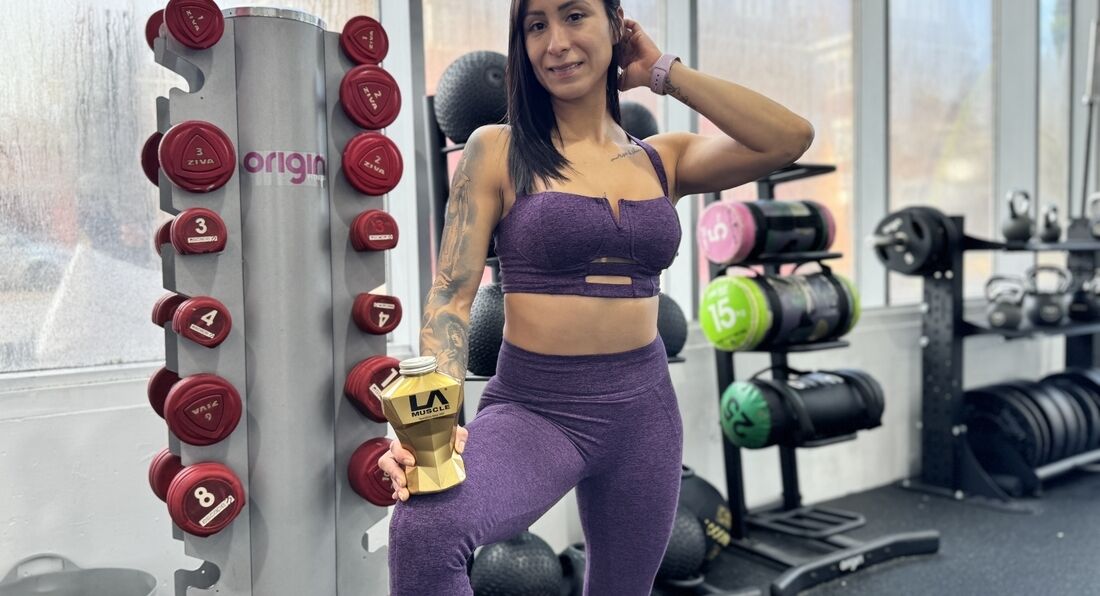Friday, 12th August 2022
7 Fuelling Mistakes Before A Workout
Eat right for exercise
By LA Muscle on 12.08.2022 10:50 am
When it comes to fuelling up before a workout, most of us already know the basics: Eat something and drink water if you want to get the most out of every session, maximize results and avoid overuse injuries, fatigue, or feeling lightheaded or dizzy during a workout. You must ensure your body is working at its peak performance level. Most people who exercise regularly will tell you fuelling up correctly is critical, but they don't always know what that means. So let's look at some common fuelling mistakes and find out how to fix them.
1. Skipping snacks
Many rely on snacks to keep them energized and hydrated throughout the day. But what about those afternoon hours when you’re too busy to sit down for a meal?
Snacking is essential, especially in the afternoon, because it helps you avoid overeating later in the evening. Snacks also can help you avoid unhealthy food choices that may lead to weight gain or other complications. But, on the other hand, skipping snacks will only leave you hungry and cranky—and who wants that?
2. Not eating enough
No matter what anyone tells you, your body needs energy for working out. But how much you should eat depends on several factors, including your age and gender, the type of exercise you're doing (cardio vs weights), your fitness level and your goals.
3. Eating too late
One of the biggest mistakes people make before a workout is to eat too late. It's natural for your body to want to sleep at night and be awake during the day, and this is regulated by an internal clock known as circadian rhythm. The circadian rhythm is influenced by light and dark, so eating late can disrupt it, making it harder for you to sleep that night and wake up feeling refreshed in the morning.
4. Not getting enough protein
Eating protein is essential to building muscle, but many people aren't getting enough. If you don't get enough protein in your diet, it can be challenging for your body to build muscle and recover from workouts.
Protein helps you build, maintain and repair muscle mass by providing amino acids used to create new proteins. Your body needs these amino acids from food because it cannot manufacture them on its own. Protein is also the building block for hormones such as testosterone that helps muscle building and sex drive.
Because of this critical role in muscle growth and recovery, experts recommend consuming between 0.4-0.7 grams per pound (1 g/kg) of body weight as part of a healthy diet plan—that means if you weigh 150 lbs (68 kg), you should aim for roughly 68–105 grams per day. With protein supplements such as LA Whey Gold, you can rest assured that you will meet your daily high quality and complete protein requirements.
5. Forgoing carbs or fat
While fat and carbohydrates each have their roles to play in your body, you must get enough of both. Carbohydrates are the body's preferred source of energy, so if you don't eat enough of them, you'll feel sluggish and tired during exercise. On the other hand, fat is essential for healthy brain function, energy storage, hormone production and cell repair.
6. Eating a high-fibre meal before a workout
It's best to eat a meal that has a good balance of complex carbs and proteins before working out. This will fuel your body for the session but won't give you any bloating or other stomach issues.
If you're eating a high-fibre meal before exercising—like Brussels sprouts or kale—there's also a chance that the food will sit in your gut for too long. That can cause cramping and discomfort while exercising and diarrhoea after exercise (which isn't fun).
7. Falling for a snack fad
Don't get caught up in the latest snack fad.
Snacks are a great way to get extra calories, but they should be eaten between meals and need to be healthy and consumed in moderation. If you're going to have a snack, it's best to eat it about 60 minutes before exercise, giving your body time to digest it before exercising. Snackers should also be mindful of how much they eat as snacking too much can increase your risk of gaining weight over time!
Your energy levels and ability to recover from your workout will be significantly improved if you follow some basic principles when it comes to fuelling up for exercise
● Eat a high protein snack or LA Whey Gold protein shake within 30 minutes of finishing your workout.
● Eat a nutrient-rich meal within two hours after your workout.
● Eat a snack within 2 hours of finishing your workout.
Conclusion
If you need help remembering what not to eat before a workout, here's a quick refresher: Don't skip meals, eat enough food throughout the day, don't get too full or too hungry before exercising, include protein in your diet, and stay hydrated with plain water throughout the day, carbs and fat are both important, so don't try to cut one or the other entirely from your diet (it may seem appealing, but it won't work), beware of any fibre you consume right before exercise as it will usually lead to an upset stomach during exercise, and finally, no matter what fad diets tell us, these suggestions are based on solid research and proven results!





























